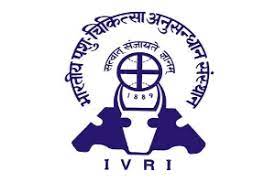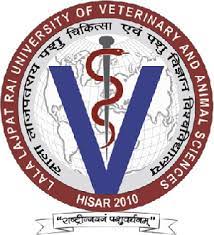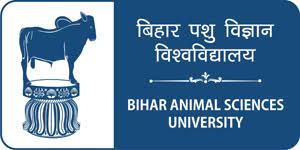The Ph.D. in veterinary pharmacology aims at advancing the science of animal drug delivery and developing better drug therapies. The concentration areas of this program include research at the molecular and cellular level, lipid-derived mediators of inflammation, and lipid-regulated pathways. The study will also incorporate pharmacological methods and whole organisms. The research will be aimed at improving animal health and welfare.
Applicants should have prior training in pharmacology, therapeutics, and veterinary medicine. The Ph.D. program requires five years of full-time study and a dissertation defense. The course curriculum will vary, but a general overview of the coursework is linked below. The graduate program is designed for individuals who plan to pursue research in a particular area and are interested in becoming faculty members.
The coursework is typically interdisciplinary, and students may specialize in a particular area. The coursework includes a thesis or dissertation. The final portion of the degree focuses on the application of pharmacological principles to veterinary medicine. For example, a student can focus on a topic that interests him or her. Another example is the application process for a job in a research lab.
The degree is typically offered part-time by various universities and colleges. A graduate will be well-qualified for a career in pharmacological research or academic medicine. The doctoral program is a good choice for those who wish to further their education in a field where the application is crucial to animal welfare. If you are already working as a veterinarian, a Ph.D. may be right for you.
Ph.D. in Veterinary Pharmacology Eligibility
Candidates who want to take admission in Ph.D. must have a post-graduate degree in Veterinary Pharmacology and its relevant discipline with at least 55% marks from a recognized university and must have passed the national level entrance examination or university level entrance examination. National level entrance exams like UGC NET / UGC CSIR NET / GATE / SLET or University entrance exams consist of written tests and personal interviews.
Benefits of a Ph.D. in Veterinary Toxicology and Physiology
A Ph.D. in Veterinary Toxicology and Physiology prepares students for research, teaching, and related obligations in the government and private sectors. This course focuses on the treatment of contamination in pets. It focuses on large animal and small animal pharmacology, neurotoxicology, drugs resistance, ecological radiology, and more. There are numerous benefits to earning a Ph.D. in Veterinary Toxicology and physiology.
A Ph.D. in Veterinary Pharmacology and Physiology prepares individuals for careers at the United States Department of Agriculture, nonprofit animal organizations, and the military. It also gives graduates the opportunity to enter the pharmaceutical industry and biotechnology industries. Many DVM graduates later pursue academic careers, including teaching in a college or university. In addition, they can work in the field of clinical veterinary medicine.
A Ph.D. in Veterinary Pharmacological Physiology allows candidates to specialize in a specific field of veterinary medicine. The DVM degree is necessary, but a Ph.D. in pharmacology is more desirable. A Ph.D. in pharmacology will allow the candidate to develop their own independent research program. A successful applicant will also possess excellent interpersonal skills and the ability to work in a collegial team environment.
A Ph.D. in Veterinary Pharmacology trains students to be researchers. During the course of the doctoral study, participants will study the effects of drugs on living organisms. In addition, the Ph.D. will help them to develop their problem-solving skills and scientific approach. A Ph.D. in Veterinary Pharmacy can also lead to a higher salary than a BSc in Physiology.
The Career and Job Opportunities of a Ph.D. in Veterinary Pharmacology
Graduates of a Ph.D. program in veterinary pharmacology are well-prepared to work in the clinical research, teaching, or administration of clinical trials. Faculty members' research interests range from basic immunogenetics to applications in surgical problems. Collaboration with extramural agencies and other departments is encouraged. Students can gain teaching experience during their studies. In addition to research opportunities, students can apply for postdoctoral fellowships.
Career prospects are excellent for graduate students with a Ph.D. in veterinary pharmacology. Graduates are prepared for research and teaching careers, as well as for government careers related to the field. In addition to academic careers, pharmacology graduates enjoy high salaries. In academia, Ph. D.s are the top choice for many positions. Those interested in this field should consider becoming an academic or medical researcher.
Ph.D. programs in veterinary pharmacology offer a broad range of job prospects. Graduates may work in a laboratory, as a veterinarian, or as an independent scientist. In this field, there are many different career paths. Some graduates end up as science teachers, others become zoo animal care specialists, park managers, animal-assisted therapists, and veterinarians. Some students pursue their PhDs online.
The Future Scope of a Ph.D. in Veterinary Pharmacology
In this course, candidates will gain in-depth knowledge of veterinary pharmacology and toxicology. This degree is highly valued in the veterinary industry, with a high demand for qualified individuals who are able to understand the working of different medications. It is an excellent choice for those who are interested in making a career in the field of animal health. This degree program consists of four semesters, and candidates must have a postgraduate degree in any discipline.
Applicants who wish to pursue a Ph.D. in veterinary pharmacology must have a good academic record and pass the entrance examination of their university. Moreover, they should have the patience to deal with animals, possess high interpersonal skills, and have a keen eye for disease. A Ph.D. in veterinary pharmacology is one of the most coveted degrees in this field, and it is highly regarded by renowned universities.
The future scope of a Ph.D. in veterinary pharmacology is varied, with graduates finding jobs in many fields. The market value of a Ph.D. in veterinary science is high, and graduates may pursue a variety of careers. The Ph.D. course usually lasts three to five years, depending on the university and the candidate's educational background. The average salary for a Ph.D. in veterinary science is between $50K and 500K.
Ph.D. Research Programme duration
The Ph.D. in Veterinary Pharmacology course is a minimum of 3 years and a maximum of 5 years in duration. This depends on the university offering the course.
Fees for research program for Veterinary Pharmacology
The average fee for Ph.D. in Veterinary Pharmacology degree is between INR 50000 and INR 500000.
 5 Years
5 Years
 PhD
PhD
 Research
Research
















 back
back